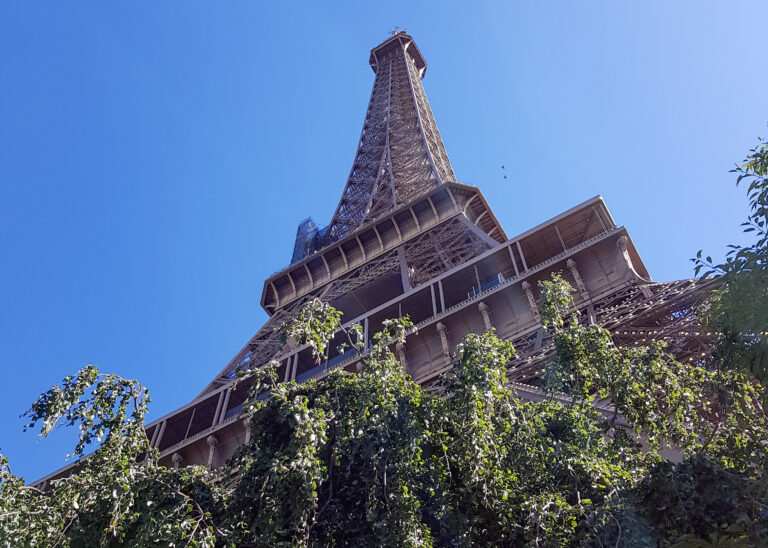Is Paris Safe For Tourists In 2025?
Worried Paris might not be safe? Here’s what to know before you go.
So, you’ve booked the trip, packed the suitcase, and mentally committed to eating at least four croissants a day (as you should). But before you board that flight, there’s one last thing to check off your list:
Is Paris safe for tourists in 2025?
The short answer is yes—as long as you know what to expect. Like any major city, Paris has its share of petty crime, especially around busy tourist areas. But with a bit of awareness (and a zipped-up bag), you’ll be absolutely fine.
I’m heading back to Paris next month with my cousin, who’s never been before—so I’m extra tuned in to what first-timers need to know. This is just going to be a quick visit, and my 2 day itinerary ensures everything is covered.
Let’s walk through the real risks, the common scams, and the practical ways to stay safe while enjoying every second of your trip.
Updated for 2025 ✅ All tips and info in this post reflect the latest travel advice and on-the-ground experience as of this year.

📝 This post may contain affiliate links, which means I might earn a small commission if you book or buy through them—at no extra cost to you. Thanks for supporting First Step: Europe and helping keep the croissant fund full!
What Are the Main Safety Concerns in Paris?
When people ask, “Is Paris safe?” they’re usually thinking about three things: petty theft, scams, and civil unrest. The good news? Violent crime is extremely rare—especially in the areas most tourists visit.
Paris is busy, beautiful, and full of distractions—and that’s exactly what pickpockets rely on. You’re most likely to run into trouble in crowded areas like the Eiffel Tower, Sacré-Cœur, or Gare du Nord, especially around Metro stations and major landmarks.
Here’s what to keep in mind:
- Pickpocketing is the most common issue—bags, phones, and wallets are easy targets if they’re not secured.
- Scams are everywhere, especially in tourist hotspots (don’t worry—we’ll cover those next).

- Protests happen often, but are usually peaceful. They can disrupt transport, so it’s good to stay informed. If you find yourself caught in one, calmly head for the edge of the crowd and take shelter in a public building if needed. Don’t run—just walk away.
- The terrorism threat level remains high (according to gov.uk), but everyday risks are low if you avoid large crowds and stay alert in public places.
You’re not in danger just by being in Paris—but like any big city, it pays to stay smart. Keep your bag zipped, trust your gut, and enjoy the trip.
Common Scams in Paris (And How to Avoid Them)
Pickpockets aren’t the only ones to watch out for in Paris—there are a few classic tourist scams that pop up again and again. Most rely on distraction, pressure, or catching you off guard.
They’re not dangerous, but they are annoying—and totally avoidable once you know what to look for.
🎁 Friendship Bracelets
Mainly around Montmartre and the Sacré-Cœur. Someone grabs your wrist, ties a bracelet on, and demands money. It’s not a gift—it’s a trap.
What to do: Don’t slow down, don’t engage, and pull your arm away if needed. A firm “laisse-moi tranquille” (“leave me alone”) usually works.
✍️ Fake Charity Petitions
Usually near landmarks like the Eiffel Tower or Louvre. Someone hands you a clipboard and asks for a signature. While you’re distracted, someone else checks out your pockets.
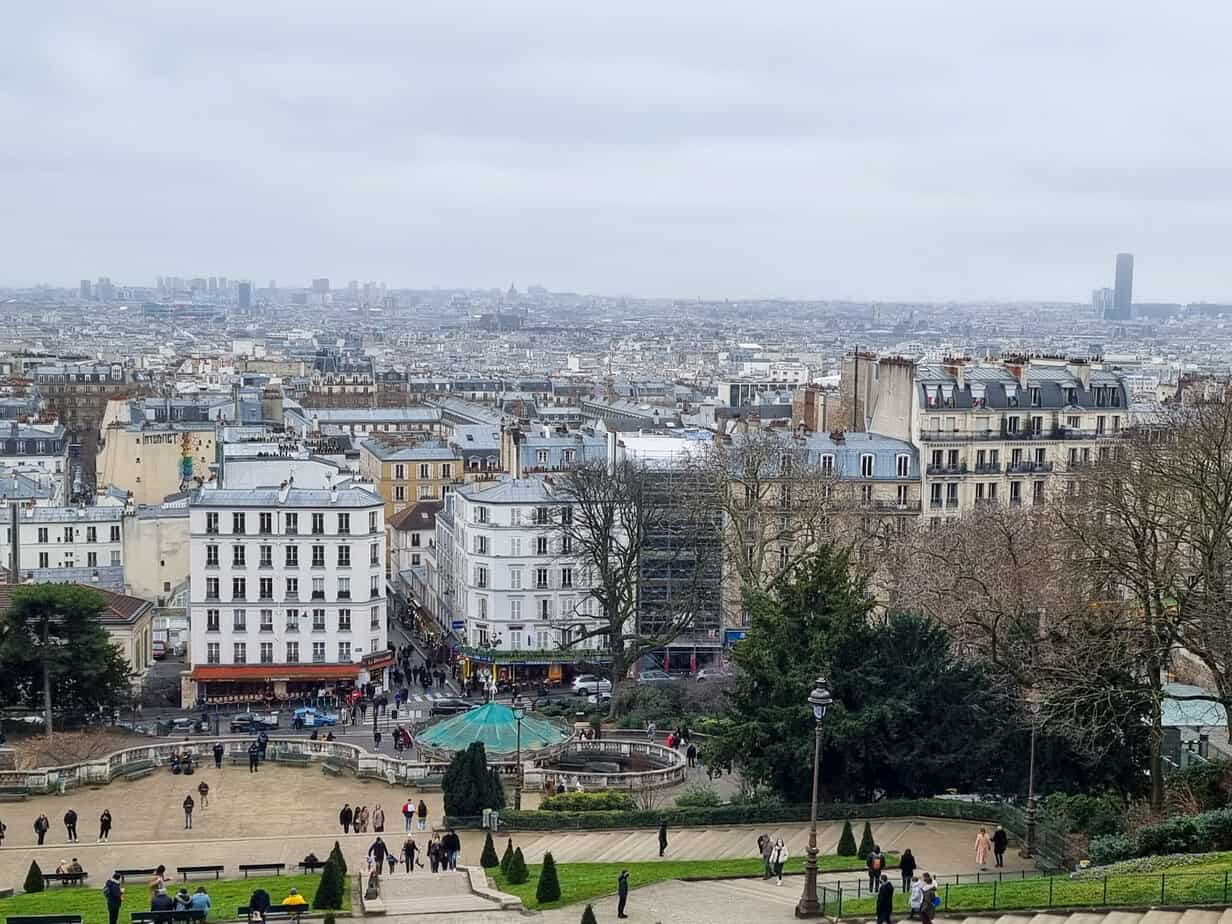
Real-life moment: I fell for this one the first time. Callum was halfway through signing before I clocked it. We didn’t lose anything—thank you, cross-body bag under the coat—but lesson learned.
🌹 The Rose Trick
A “friendly” vendor hands you a rose with a smile, then demands money. Even if you give it back, they might follow you for a while.
What to do: Don’t take anything handed to you on the street—especially not flowers.
💍 The Gold Ring Scam
A woman picks up a ring from the ground and insists you dropped it. Then she asks for a “finder’s fee.” Spoiler: it’s brass, and it’s a scam.

What to do: Say no and walk away. Don’t get drawn into conversation.
🃏 Street Games & “Psychics”
Shell games, card tricks, fortune tellers—they’re more about picking your pocket than reading your palm. These spots also attract groups working together.
What to do: Avoid stopping, even to watch. Just being nearby can make you a target.
🎫 Fake Metro Helpers
Someone in a fake “uniform” offers to help you with the ticket machine. They charge you full price, then give you a child’s ticket and keep the change.
What to do: Politely decline and buy your own ticket. If in doubt, go to a staffed counter.
Is Paris Safe At Night?
Yes—Paris is generally safe at night, especially in central areas like Le Marais, the Latin Quarter, and Saint-Germain-des-Prés. These neighbourhoods stay lively well into the evening, with plenty of people out and about, open cafés, and good lighting.
You’ll likely feel completely at ease while enjoying the city after dark, especially if you stick to well-known streets.
That said, Paris is still a big city, and it’s worth staying aware. If you’re walking alone, especially late, avoid wearing headphones and stick to busy routes. I tend to avoid quiet side streets unless I know the area well.
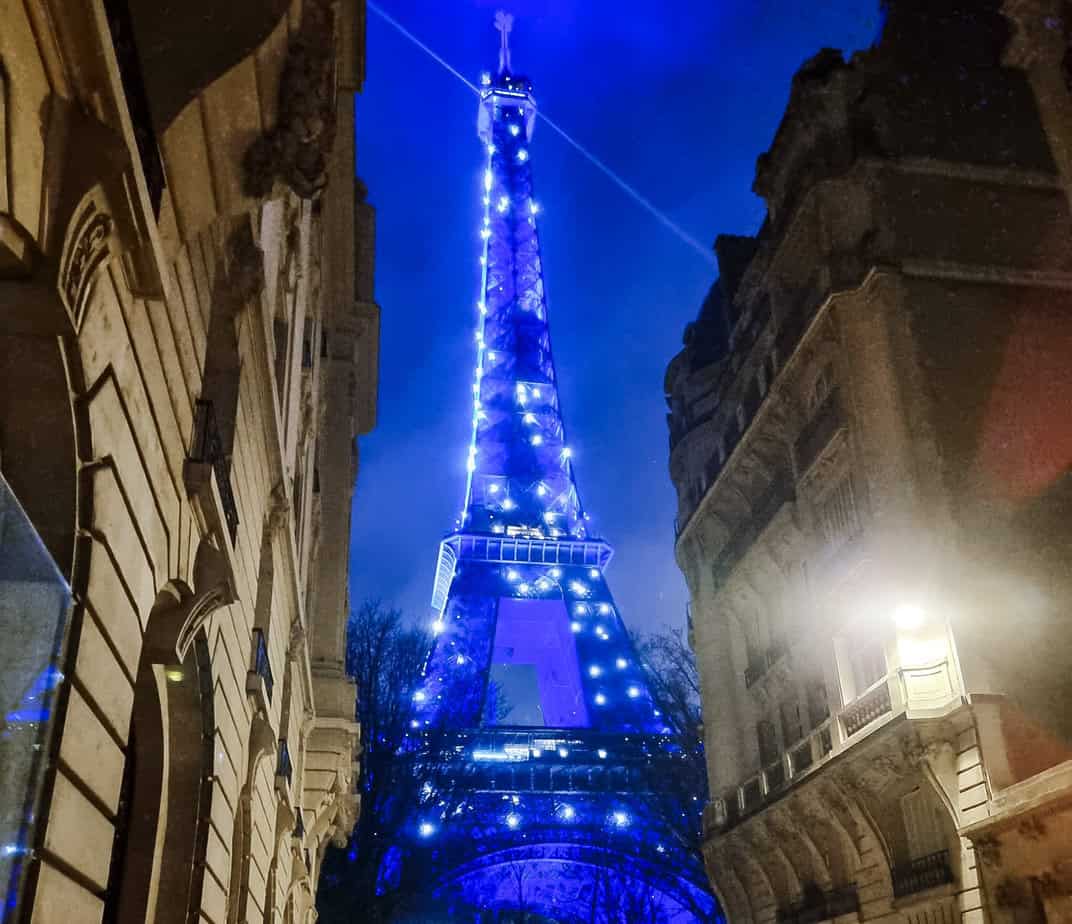
The Metro is usually fine in the evening, but after midnight it can feel a bit sketchy—particularly in quieter stations. If I’m heading home late, I usually opt for a taxi or Uber over public transport.
If you’re staying outside the centre, I’d recommend planning your night so you’re back near your accommodation before things quiet down. That way, you’re not trying to navigate an unfamiliar neighbourhood on your own at 2am.
And if you’re wondering what’s actually worth doing after dark, I’ve put together a whole post on that! Here’s my guide to Things to Do in Paris at Night—every activity in there is fun and safe.
One of my favourite safe, low-key activities after dark is a Wine and Cheese Tour in Paris—because what’s safer (and more delicious) than wine, cheese, and a relaxed local guide?
Staying Safe as a Solo or LGBTQ+ Traveller in Paris
Being uncertain that you are safe when travelling is sure fire way to ruin your holiday. Hopefully, the answers to these common concerns will help put your mind at ease!
Is Paris Safe for Solo Female Travellers?
Paris is generally a safe city for solo female travellers. I first visited solo at 18, totally new to the city and (unknowingly) booked a mixed hostel in a not-so-great area. I didn’t have any issues, but knowing what I do now, I’d stick with better-reviewed places and stay aware, especially at night. 24/7 receptions are also a bonus!

As with any big city, a little extra awareness goes a long way. Walk confidently, trust your instincts, and plan ahead for late nights. I’ll share my full list of easy safety tips later in this post—things that help make solo travel in Paris feel even more comfortable.
Is Paris Safe for LGBTQ+ Travellers?
Absolutely—Paris is one of the most LGBTQ+ friendly cities in Europe. The city has a long history of inclusion, and public displays of affection are widely accepted, especially in central areas. Le Marais is known as the “gay district,” packed with bars, bookshops, and late-night cafés that are proudly inclusive and safe.
Discrimination is rare in tourist-friendly neighbourhoods, and the local community is strong and visible.
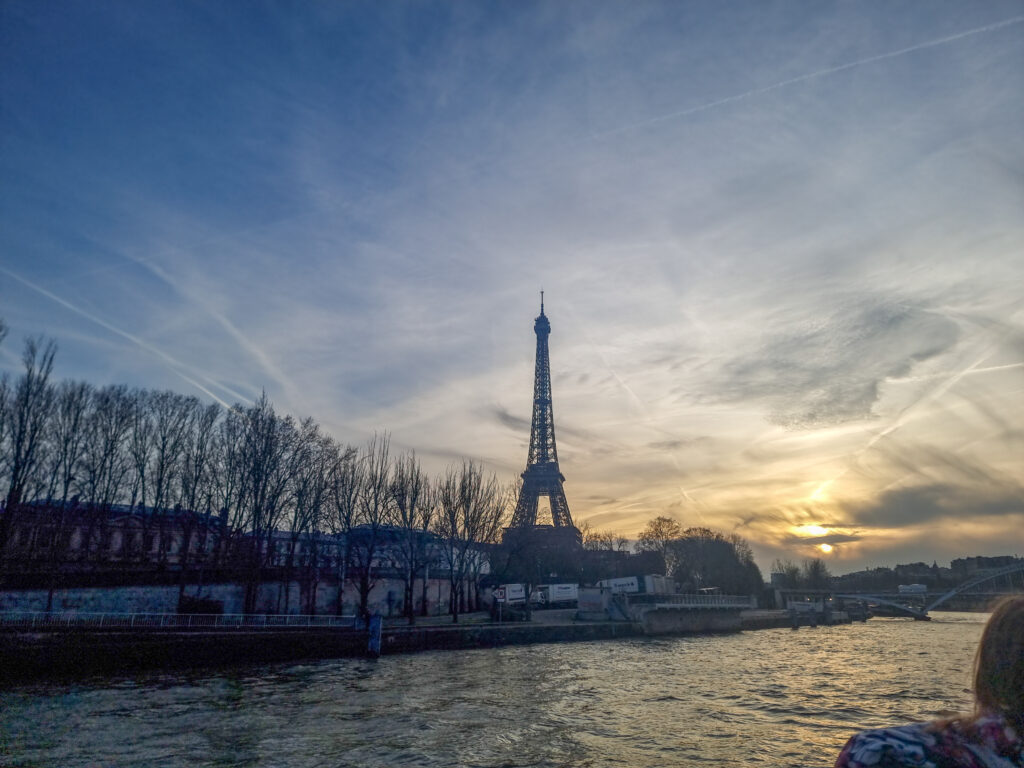
Whether you’re travelling solo, with a partner, or as part of a group, you’ll feel welcome here. A few great spots to check out include Les Mots à la Bouche (a brilliant LGBTQ+ bookshop) and Le Cox or RAIDD Bar for nightlife.
Paris isn’t just safe for LGBTQ+ travellers—it’s somewhere you can feel completely comfortable being yourself.
What to Do If Something Goes Wrong in Paris
Even with the best planning, sometimes things don’t go to plan. Paris has excellent services if you need help—and knowing what to do ahead of time makes all the difference.
📸 Tip: Take a quick screenshot of this list so you have it handy, just in case you don’t have WiFi when you need it!
🚨 Emergency number: Dial 112 anywhere in France for police, fire, or medical emergencies.
🛂 Lost your passport? Contact your country’s embassy. Most are centrally located and can issue emergency travel documents.
💊 Minor medical issue? Head to a local pharmacie—pharmacists are brilliant and can help with minor injuries or advice.
👩⚕️ Need a doctor? Call SOS Médecins at +33 (0)1 47 07 77 77—they offer home visits and English-speaking doctors (check your insurance first).
🇬🇧 UK travellers: Carry your GHIC (or valid EHIC) card to access state healthcare at a reduced cost or for free.
📝 Theft or loss: Report stolen items at the nearest commissariat de police (police station) and get a report for your insurance claim.
Having solid travel insurance is a lifesaver if anything goes wrong, from stolen bags to flight cancellations. Better to be safe than sorry!
How to Stay Safe in Paris:
Quick Tips That Actually Help
Now that you know what to do in an emergency, here are the little things I always do to avoid one in the first place.
🎒 Keep your bag zipped and in front of you, especially in crowds and on the Metro.
👖 Avoid putting anything in your pockets—phones, wallets, and passports are easy targets.
💳 Use a travel card or split your cash so you’re not carrying everything in one place. Monzo is a great bank to use, as it does all the conversions for you with no fees!
👜 Leave valuables in the hotel safe when you don’t need them out with you. Better yet- just leave them at home.
💡 Don’t flash expensive items or gadgets, especially in quieter areas or late at night.

☕ Keep your bag on your lap or under the table, not hanging on a chair at cafés.
🚇 Stay alert on public transport, particularly near the doors and during rush hour.
📱 Download offline maps and key contact info—just in case you’re without WiFi.
🔐 Invest in decent travel insurance. It’s boring but you’ll be glad you did if anything goes wrong.
This isn’t about being paranoid—it’s just about staying one step ahead so you can relax and enjoy your trip.
Not sure the best way to move around safely? My How to Get Around Paris guide breaks down all your options, from the Metro to late-night taxis.
Safe Hotel Picks in Paris
(And a View, If You Want One!)
If you’re still choosing where to stay, the 1st arrondissement is a brilliant option. It’s central, safe, walkable, and close to all the must-see spots—ideal if you’re visiting for the first time and want to feel secure getting around, even at night.
Want something a little more special? If you’re dreaming of waking up to a view of the Eiffel Tower (who isn’t?), there are some stunning hotels that are just as safe as they are scenic.
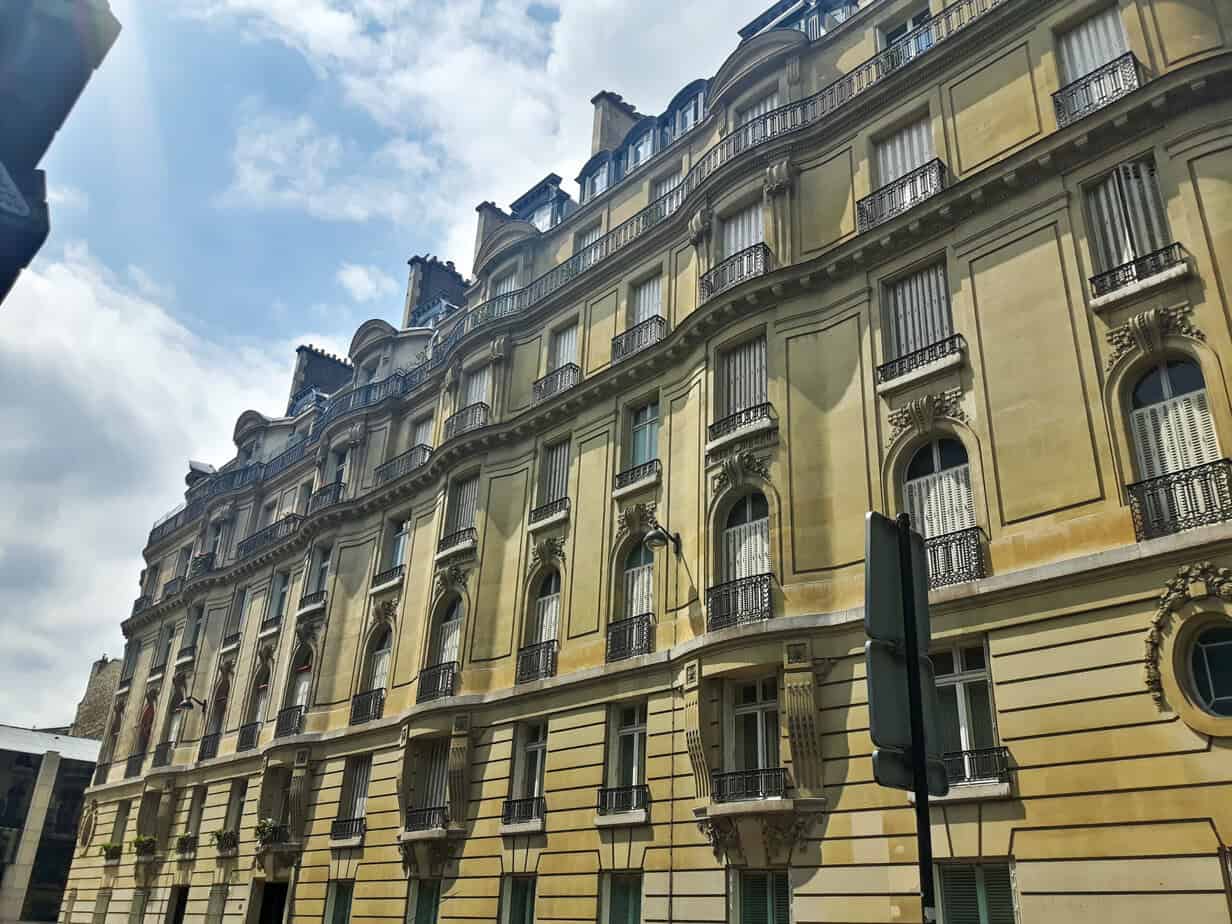
✨ I’ve listed my top picks in these guides:
→ 1st Arrondissement Hotels: Central Picks You’ll Love
→ Paris Hotels With a View of the Eiffel Tower
They’re all in safe neighbourhoods, with great transport links and solid guest reviews—because no one wants Eiffel drama when they’re supposed to be sipping champagne.
Visiting Paris: FAQs
Is Paris safe in 2025?
Yes. Like any major city, there are risks—but with basic street smarts, Paris is a safe place to visit in 2025.
Can I walk around Paris alone at night?
In central areas, yes. Stick to well-lit streets, skip the headphones, and have a route in mind—especially if you’re solo.
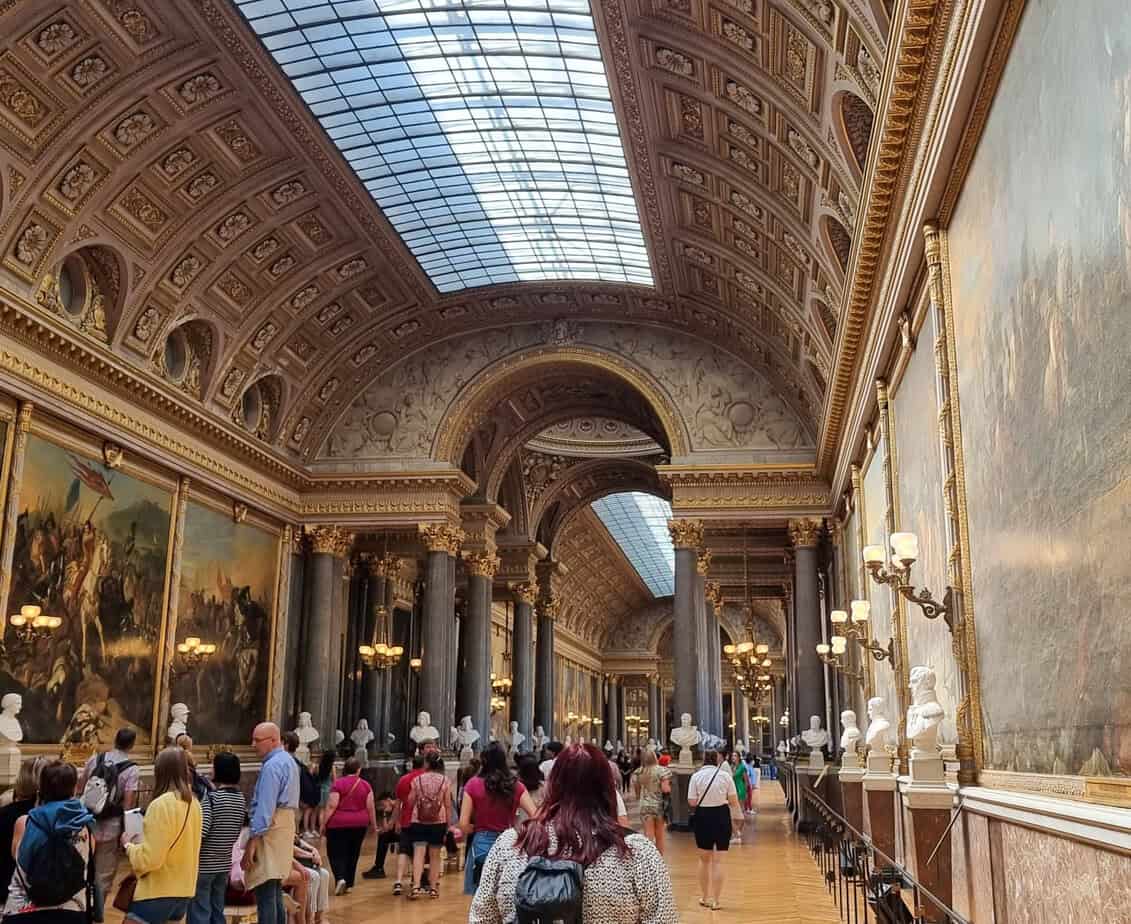
What’s the biggest safety issue in Paris?
Petty theft—mainly pickpocketing and scams in tourist areas. Stay alert, keep your bag zipped, and don’t engage with street distractions.
Where should I stay to feel safe?
The 1st arrondissement, Latin Quarter, and Le Marais are all solid, central, and tourist-friendly.
Is the Metro in Paris safe?
Generally, yes—especially during the day. Just keep your belongings close and be extra aware during busy times or late at night.
Is Paris Safe for Tourists in 2025? Final Thoughts
Paris is as safe as any major city—you just need to be aware of your surroundings, trust your instincts, and take a few simple precautions. The scams and pickpockets are real, but violent crime against tourists is rare, and most visits are completely hassle-free.
Every time I visit Paris (and there have been a lot of trips now!), I follow the same basic steps to stay safe: watch my belongings, stay alert in crowds, and plan ahead for late nights. It’s not about being paranoid—it’s about being prepared, so you can relax and actually enjoy the city.
If you’ve got an extra day or two to play with, my 3 Day Paris Itinerary adds in some safe, lesser-known areas to explore.
If you’re smart, confident, and a little bit streetwise, Paris will steal your heart—not your wallet.


